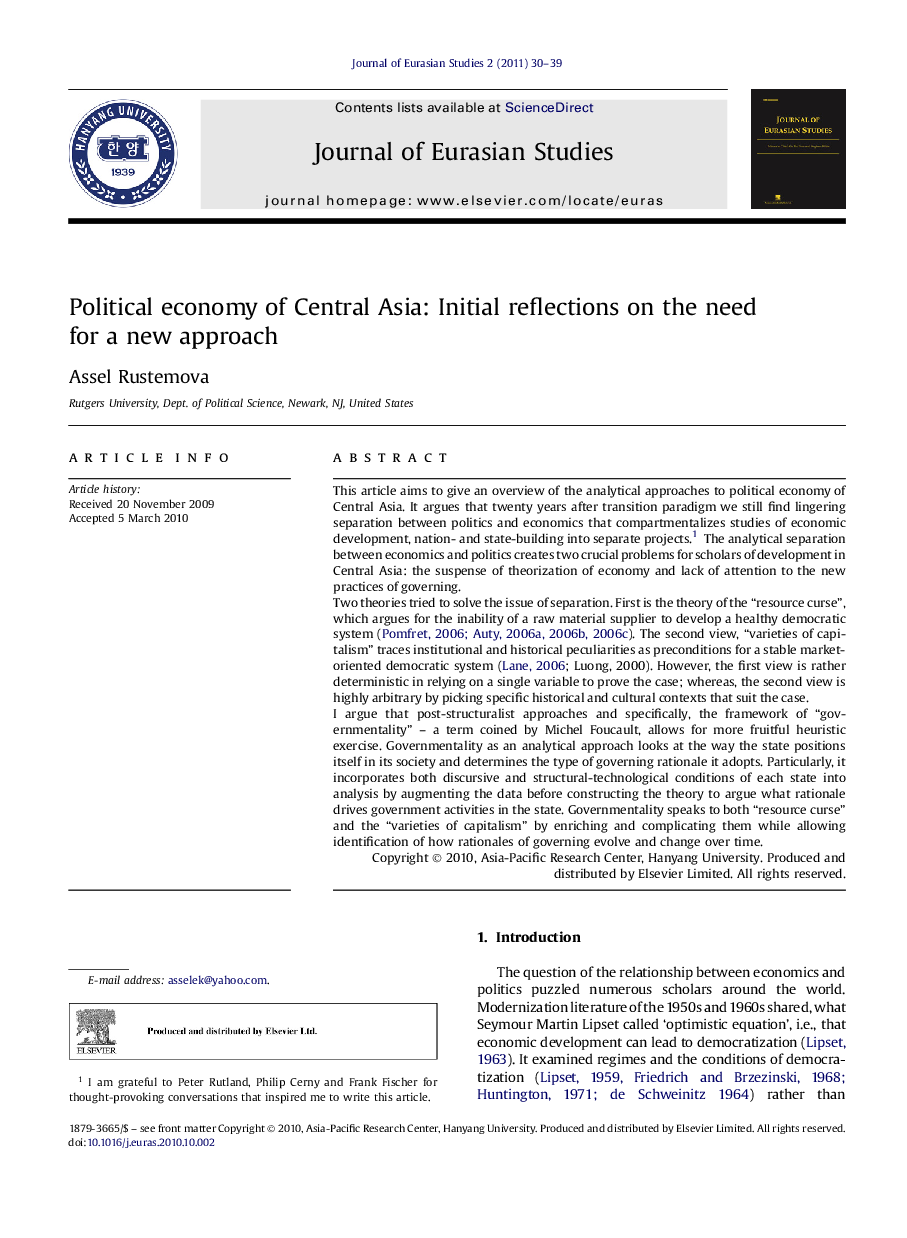| Article ID | Journal | Published Year | Pages | File Type |
|---|---|---|---|---|
| 1127288 | Journal of Eurasian Studies | 2011 | 10 Pages |
This article aims to give an overview of the analytical approaches to political economy of Central Asia. It argues that twenty years after transition paradigm we still find lingering separation between politics and economics that compartmentalizes studies of economic development, nation- and state-building into separate projects.1 The analytical separation between economics and politics creates two crucial problems for scholars of development in Central Asia: the suspense of theorization of economy and lack of attention to the new practices of governing.Two theories tried to solve the issue of separation. First is the theory of the “resource curse”, which argues for the inability of a raw material supplier to develop a healthy democratic system (Pomfret, 2006, Auty, 2006a, Auty, 2006b and Auty, 2006c). The second view, “varieties of capitalism” traces institutional and historical peculiarities as preconditions for a stable market-oriented democratic system (Lane, 2006; Luong, 2000). However, the first view is rather deterministic in relying on a single variable to prove the case; whereas, the second view is highly arbitrary by picking specific historical and cultural contexts that suit the case.I argue that post-structuralist approaches and specifically, the framework of “governmentality” – a term coined by Michel Foucault, allows for more fruitful heuristic exercise. Governmentality as an analytical approach looks at the way the state positions itself in its society and determines the type of governing rationale it adopts. Particularly, it incorporates both discursive and structural-technological conditions of each state into analysis by augmenting the data before constructing the theory to argue what rationale drives government activities in the state. Governmentality speaks to both “resource curse” and the “varieties of capitalism” by enriching and complicating them while allowing identification of how rationales of governing evolve and change over time.
